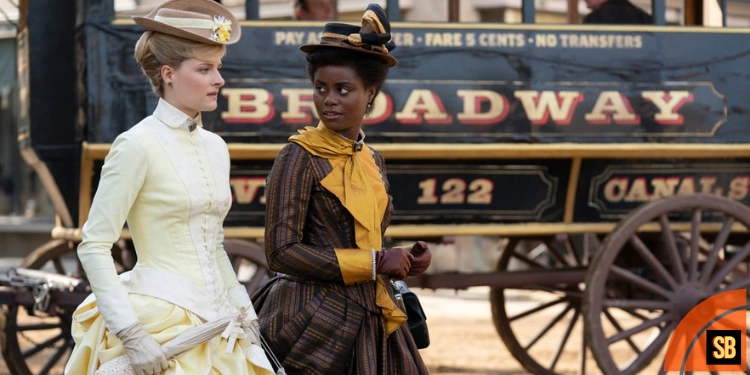After seven captivating seasons and a whopping 137 episodes, the beloved CW series Riverdale bid its final farewell with the aptly titled episode Chapter One Hundred Thirty-Seven: Goodbye, Riverdale. But in true Riverdale fashion, the ending left us with more questions than answers, sparking debates and discussions among fans. In this article, we’re diving deep into the twists, turns, and symbolism of the Riverdale series finale, unpacking the mysteries behind the closing moments that had everyone talking.
To understand the finale, let’s take a step back and recall the rollercoaster ride that was the seventh season. A wicked sorcerer wreaks havoc, leading to the destruction of the town by a comet. Tabitha Tate, a character with the ability to manipulate time, emerges as somewhat of an angelic figure. She transports the town back to 1955, altering their memories and identities, effectively resetting the timeline to their junior year of high school.
Tabitha’s mission? To guide them towards creating a better Riverdale, one devoid of the darkness that previously plagued the town. The penultimate episode, The Golden Age of Television, reveals that their efforts to infuse tolerance and inclusivity into the past have altered the timeline positively. However, there’s a catch: the 1950s version of Riverdale becomes the main timeline, erasing any possibility of returning to 2023.
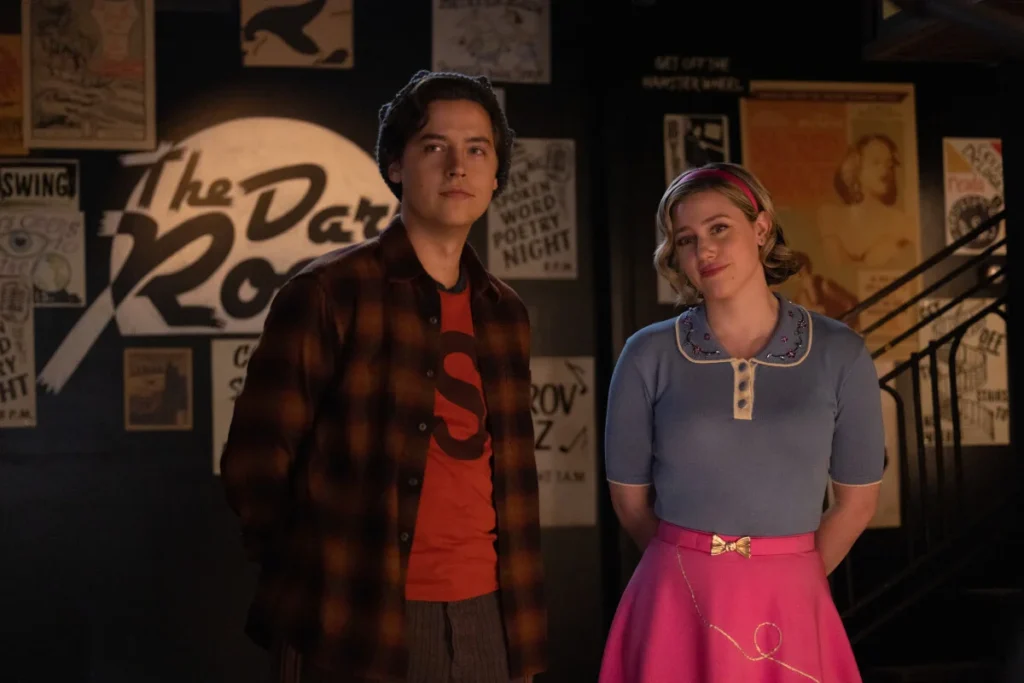
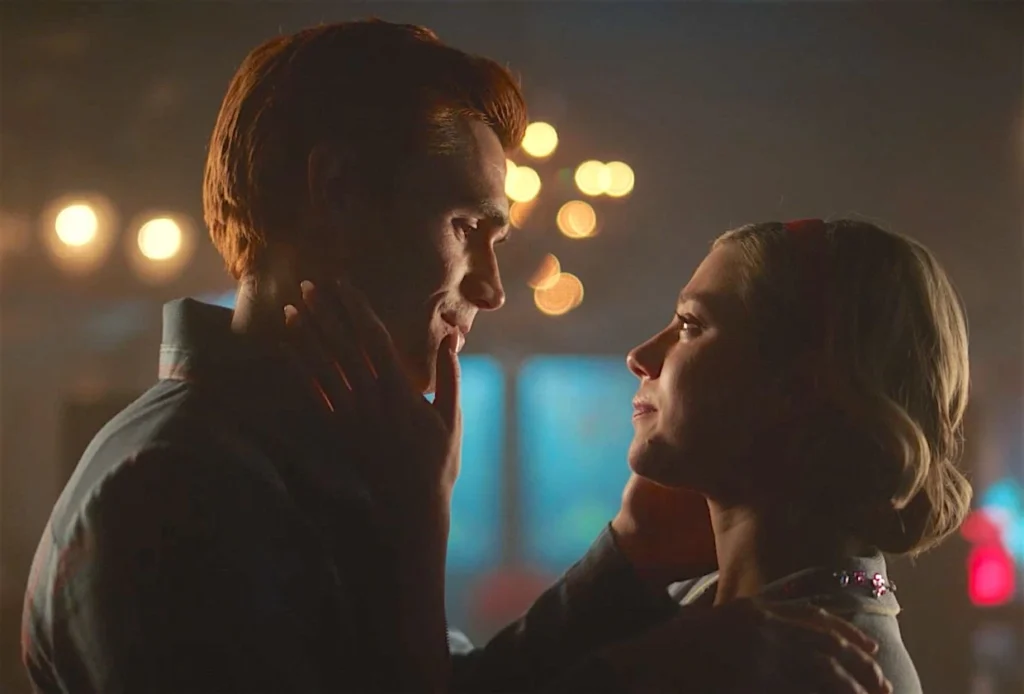

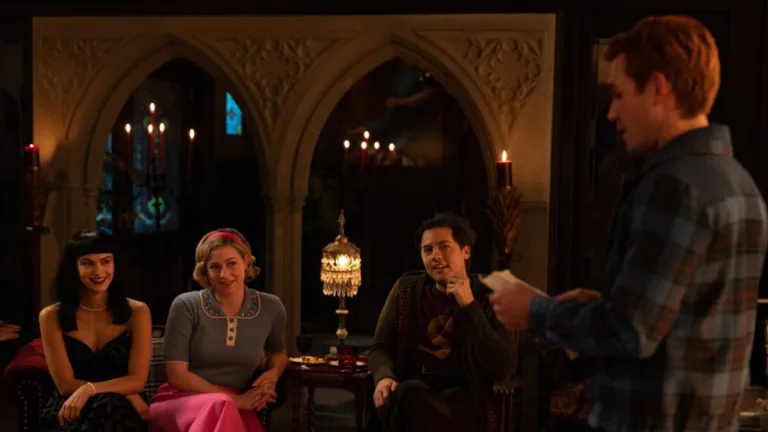
A Bittersweet Reunion and Final Choices
In the finale, we fast forward 67 years from the previous episode. Betty, now 86, gazes upon an obituary that announces Jughead’s recent passing at age 84. As Betty reflects on her life, she decides to revisit Riverdale one last time. Enter Jughead, appearing as an angelic guide offering her the chance to relive a single day from her past.
Betty’s choice takes her back to her high school senior year, enabling her to relive a moment she missed—the signing of her yearbook by her friends. This sentimental journey allows viewers to witness each character’s eventual fate as well as the unique dynamics that shaped their lives.
As the finale unfolds, we learn about the diverse paths the characters tread. Betty becomes a feminist magazine publisher, Jughead crafts a humor magazine, Veronica thrives as a Hollywood producer, and Archie embraces a career in construction. Cheryl and Toni, emblematic of resilience and activism, forge a path as artists and activists. Kevin and Clay’s love story flourishes in New York City, while Reggie’s basketball dreams come true. However, Fangs’ tragic death serves as a poignant reminder of life’s fragility.
The series finale’s most enchanting moments unfold as Betty revisits a nostalgic Pop’s Diner, signifying the characters’ homecoming to The Sweet Hereafter. In this realm of happiness, they are eternally juniors, forever bonded by shared memories and companionship. Angel Jughead’s poignant speech encapsulates the essence of the finale—moments that make up a life are treasured, and Riverdale will always be their home.




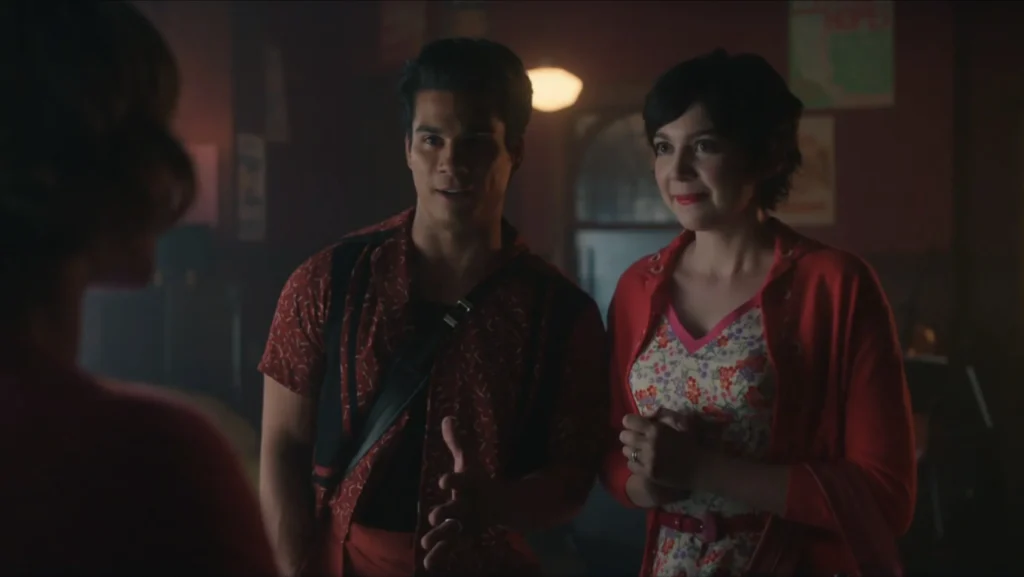
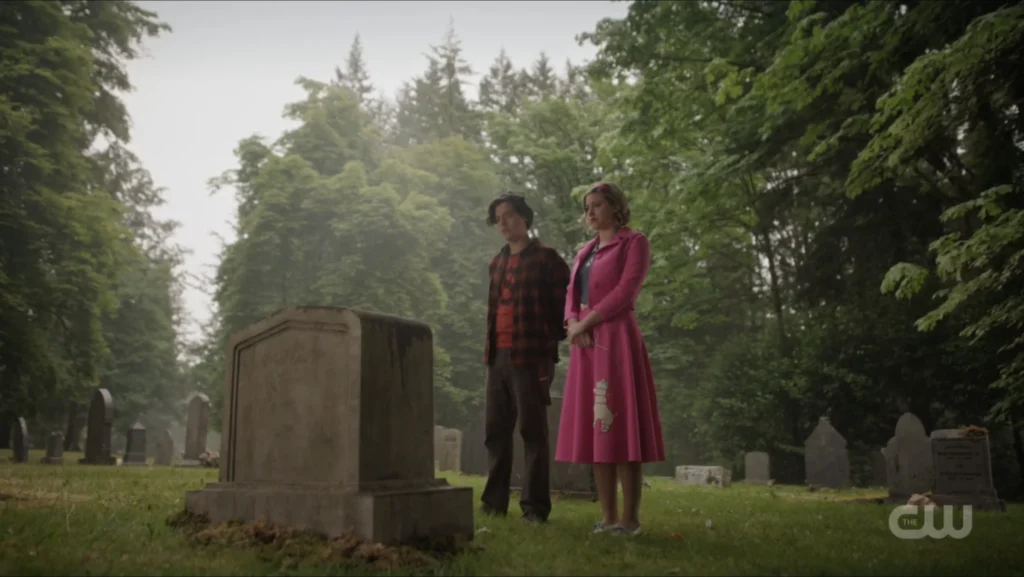
Deciphering the Metatextual Significance
Now, let’s delve into the intriguing layer of metatextuality present in the ending. Angel Jughead’s role as both a narrator and a guardian angel adds a unique dimension to the series finale. His speech reflects on the characters’ stories as part of an everlasting narrative that extends beyond the confines of the show. Just as Archie Comics and the Riverdale universe continue to captivate audiences, the characters’ journeys endure as iconic symbols.
The question arises: Was Angel Jughead an embodiment of the series itself, representing its ability to transcend time and space? The intertwining of the characters’ lives with their eternal presence in The Sweet Hereafter encapsulates the show’s powerful impact on viewers, turning it into a timeless phenomenon.
As viewers, we’re left with intriguing speculations. Was the series an exploration of the afterlife, depicted through Betty’s journey? Is the closing scene an eternal reunion or a depiction of each character’s personal heaven? While interpretations may differ, the beauty of the Riverdale series finale lies in its ability to spark conversations and inspire contemplation.
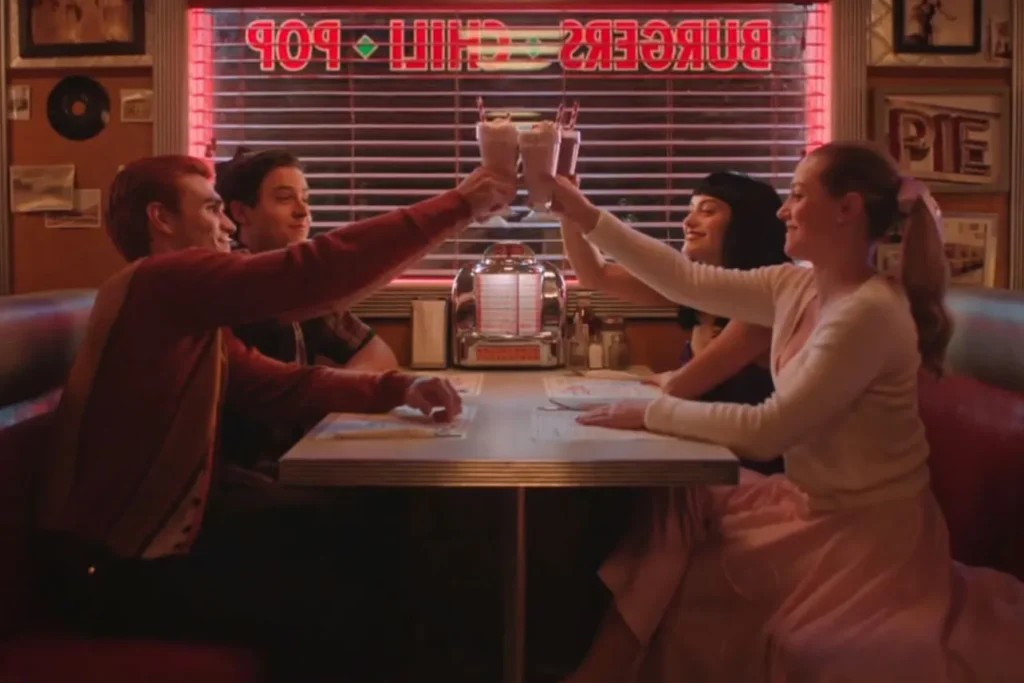
In Conclusion: An Everlasting Legacy
The Riverdale series finale leaves us with a tapestry of emotions—nostalgia, wonder, and a sense of closure. The intricate web of narratives woven throughout the show’s run culminates in an ending that challenges us to reflect on our own journeys. As we bid adieu to beloved characters who have become part of our lives, we’re reminded that endings are merely the beginning of new chapters.
In the realm of Riverdale, where mysteries abound and emotions run deep, the series finale reminds us that we’re forever intertwined with the stories we love. The legacy of Riverdale lives on, not only as a TV show but as a symbol of friendship, growth, and the enduring power of storytelling.
So there you have it—our take on the enigmatic Riverdale series finale ending explained. As we navigate the aftermath of the final episode, one thing’s for certain: Riverdale will remain forever etched in our hearts, a testament to the magic of television that leaves us pondering the mysteries of life, death, and everything in between.













